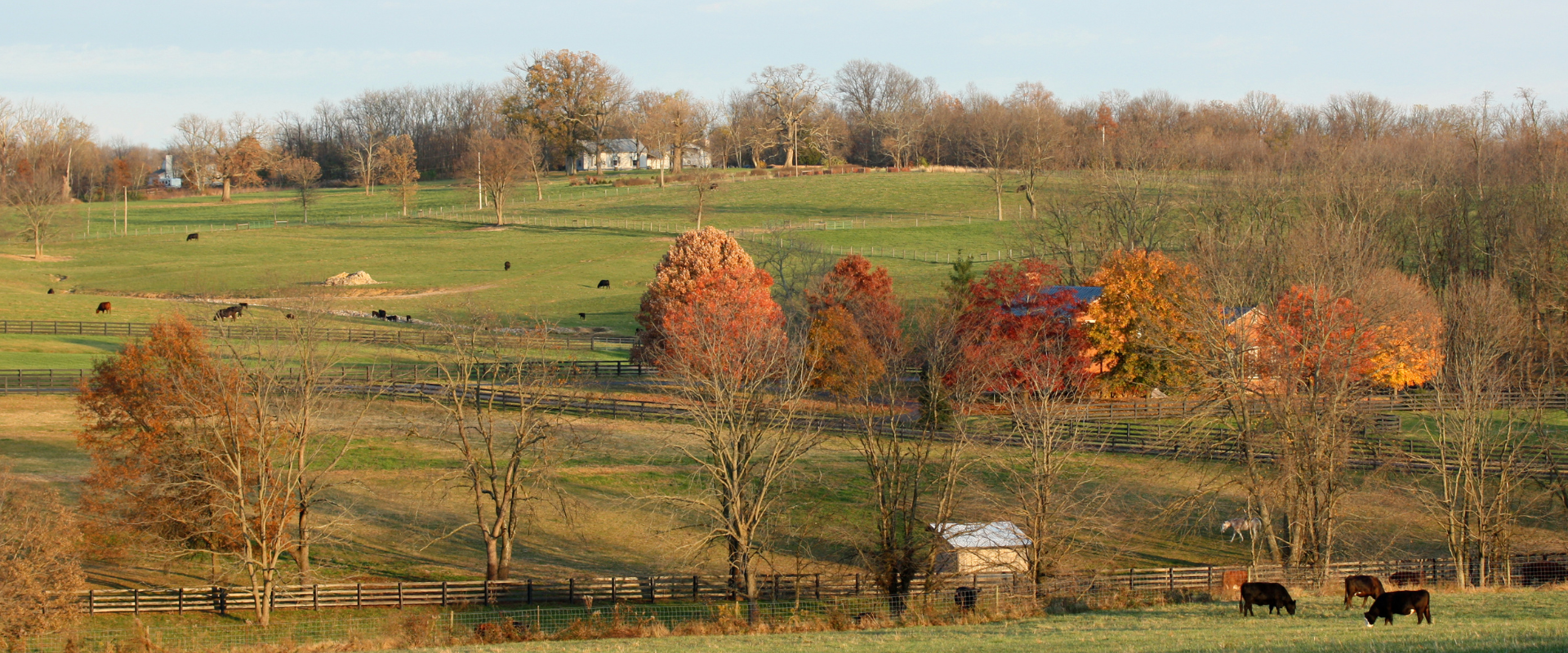Gaining Access: How To Request Permission For Property Use

It is crucial for Kentucky homeowners and real estate investors to comprehend the idea of squatters’ rights and how it may affect your property. Access to your land for future development or personal usage is one part.
The first step in requesting permission to use someone else’s property is to state your intentions and make a formal request clearly. Depending on the details, this can entail completing an application or drafting a letter.
It is crucial to give specific details about your plans for the property and how they will benefit both parties. You can improve your chances of getting approval for property usage by being open and considerate of the property owner’s rights.
Understanding Squater’s Ritghts Table Of Contents
1. Gaining Access: How To Request Permission For Property Use
2. Securing Your Property: Understanding Kentucky Adverse Possession Laws
3. Ejecting Unwanted Guests: Tips For Removing Squatters From Your Property
4. The Ins And Outs Of Squatting: Understanding The Concept And Its Implications
5. How Do I Claim Adverse Possession In KY?
Squatting Vs Trespassing: Know The Legal Differences
When it comes to understanding squatter’s rights in Kentucky, it’s important for homeowners and real estate investors to be well-informed about the legal differences between squatting and trespassing. While both involve occupying a property without the owner’s permission, they are distinct in terms of their legality.
Squatting is occupying a piece of undeveloped land for a set amount of time, after which the tenant may finally be granted legal ownership rights. Conversely, entering a property without authorization, whether or not occupied, is known as trespassing.
This is regarded as a criminal offense and may be punished with fines or imprisonment. Homeowners and investors can better safeguard their properties and know their rights in the event of any of these scenarios by being aware of these distinctions.
Securing Your Property: Understanding Kentucky Adverse Possession Laws

Understanding the laws surrounding adverse possession in Kentucky is crucial for homeowners and real estate investors looking to secure their property. Adverse possession, also known as squatter rights, is a legal concept allowing someone who has been using another person’s land without permission to gain ownership of that land eventually.
In Kentucky, the requirements for adverse possession include continuous use of the land for 15 years, open and notorious use, and hostile intent. It is important for property owners to be aware of these laws, as failing to take action against a squatter can potentially result in losing ownership of their land.
Real estate investors should also be cautious when purchasing properties with potential adverse possession claims, as this can affect the value and marketability of their investment. By understanding the specifics of Kentucky’s adverse possession laws, homeowners and investors can take proactive measures to protect their property rights.
Following The Guidelines: Important Rules For Dealing With Squatters in KY
Squatter rights can be complicated for homeowners and real estate investors in Kentucky. Understanding the guidelines and rules that must be followed when dealing with squatters to protect your property and avoid legal troubles.
First and foremost, it is essential to determine if the individual in question qualifies as a squatter according to state laws. If so, specific procedures must be followed before taking any legal action.
Additionally, landlords and property owners must always provide adequate notice before attempting to evict a squatter. This includes giving them a written notice and giving them reasonable time to vacate the premises.
Failure to follow these guidelines can result in costly legal battles and potential damage to your property. By understanding the important rules for dealing with squatters, homeowners, and real estate, investors can confidently navigate this complex issue.
Ejecting Unwanted Guests: Tips For Removing Squatters From Your Property

Understanding squatter’s rights in Kentucky is crucial for both homeowners and real estate investors. While these laws are meant to protect individuals from being unjustly evicted, they can also make it difficult to remove unwanted guests or squatters from your property.
As a homeowner or investor, knowing the proper steps to take to legally eject these individuals from your property is important. This comprehensive guide will provide tips and information on how to handle the process of removing squatters in Kentucky, ensuring that you are able to protect your property and rights as a property owner.
By understanding the legalities involved and following the correct procedures, you can successfully remove any unwanted guests from your property without facing any legal repercussions.
Proactive Measures: Preventing Squatters Before They Move In
One of the biggest worries for Kentucky homeowners and real estate investors is the possibility of squatters taking over their properties. This can lead to legal battles, property damage, and financial losses.
However, proactive measures can be taken to prevent squatters from moving in. One option is to inspect vacant properties and make sure they are secure regularly.
Installing security cameras or hiring a property management company can also act as a deterrent for potential squatters. Additionally, it’s important to maintain clear documentation of ownership and any rental agreements in case of a dispute.
By being vigilant and taking these proactive measures, homeowners and real estate investors can greatly reduce the risk of squatters on their properties.
Preparing For Departure: Important Steps To Take Before Leaving Your Property
When it comes to understanding squatter’s rights in Kentucky, preparation is key for homeowners and real estate investors. Before leaving your property, important steps should be taken to protect your rights and property.
First, make sure to document any attempts made to evict the squatters, including written notices and communications with the authorities. It’s also crucial to secure all entrances and change the locks on your property to prevent re-entry.
Additionally, gathering evidence such as photographs or witness statements, can be useful in legal proceedings. Finally, consult with a lawyer specializing in squatter’s rights to ensure you take the necessary steps and protect your interests before departing from your property.
Time Is Money: How To Avoid Wasting Time Dealing With Squatters
When it comes to dealing with squatters, time is of the essence. Every day that a squatter remains on your property means a potential loss of income and additional expenses for homeowners and real estate investors.
To avoid wasting valuable time, it is important to thoroughly understand squatters’ rights in Kentucky and how to handle these situations efficiently. This comprehensive guide will provide you with the necessary knowledge and tools to navigate through the legal process and protect your property from unwanted occupants.
By taking swift action and staying informed, you can save yourself the headache and financial burden of dealing with squatters for an extended period.
The Ins And Outs Of Squatting: Understanding The Concept And Its Implications

Squatting is a concept that has been around for centuries and continues to be a relevant issue, especially in the state of Kentucky. As a homeowner or real estate investor, it is important to understand the ins and outs of squatting and its implications.
Essentially, squatting refers to occupying someone else’s property without their permission. In Kentucky, squatters may gain legal rights if they occupy a property for a certain period of time and meet specific requirements.
This can have serious consequences for homeowners and investors, leading to disputes over ownership and potentially even legal action. It is crucial to have a comprehensive understanding of squatters’ rights in Kentucky to protect your property investments and avoid any potential conflicts with individuals claiming squatters’ rights.
Claiming What’s Yours: The Process Of Asserting Squatters Rights In Kentucky
If you are a homeowner or real estate investor in Kentucky, it is important to understand the concept of squatter’s rights and how they can affect your property. Squatters’ rights, also known as adverse possession, allow someone who has been living on another person’s property for a certain period to claim legal ownership of that property potentially.
In Kentucky, the process of asserting squatter’s rights involves meeting specific criteria such as continuous occupation for at least 15 years and paying property taxes during that time. Filing a lawsuit and providing evidence to support the claim is also necessary.
This can be a complex and contentious process, so it is crucial for homeowners and investors to be aware of their rights and take appropriate steps to protect their property from potential squatters.
Know Your Rights: Familiarizing Yourself With Kentucky’s Laws On Squatters Rights
Squatters rights can be a complex and confusing topic for homeowners and real estate investors in Kentucky. Understanding the laws surrounding these rights is important to ensure that you are protected as a property owner.
In Kentucky, squatter’s rights fall under the category of adverse possession, which allows someone who has been occupying a property for a certain period of time to claim legal ownership. However, specific criteria must be met for adverse possession to apply, such as openly occupying the property without permission and paying taxes on it.
Familiarizing yourself with these laws can help you navigate potential issues with squatters on your property.
How Do I Claim Adverse Possession In KY?
Understanding squatter’s rights is crucial if you are a homeowner or real estate investor in Kentucky. One aspect of squatter’s rights is adverse possession, which allows someone to take legal ownership of a property by occupying it for a certain period.
To claim adverse possession in KY, you must meet specific criteria set by state law. This includes openly and continuously occupying the property without permission for at least 15 years, paying property taxes during that time, and having a good faith belief that you have rightful ownership.
It is important to note that claiming adverse possession can be complex and may require legal assistance. However, knowing the requirements and process can help homeowners and investors protect their properties from potential adverse possession claims.
What States Have Squatters Rights?
If you are a homeowner or real estate investor in Kentucky, it is important to understand the concept of squatter’s rights and how they may impact your property. However, it is also crucial to note that each state has its own laws and regulations regarding squatter’s rights.
In Kentucky, squatter’s rights are recognized through the adverse possession law, which allows someone to claim ownership of a property if they have openly and continuously occupied it for 15 years without permission from the owner. This can be concerning for homeowners and investors, as it may result in losing their property without compensation.
Therefore, understanding Kentucky’s specific laws and requirements is essential for protecting your rights as a property owner.
Selling a House to Kentucky Sell Now is an ideal choice for many sellers throughout the Kentucky area. We buy in many cities throughout Kentucky, including Lexington, Louisville, Ashland, Georgetown, and many more. Please contact us if you have any questions. You also can find out more about the company and find helpful questions answered.
More Resources For Kentucky Homeowners
| HOSTILE POSSESSION | SQUATTER’S RIGHT | EVICTION NOTICE | EVICTING | MONTH-TO-MONTH | EXCLUSIVE POSSESSION |
| LANDOWNERS | NO TRESPASSING | TRESPASSER | TAX PAYMENTS | LEASES | LEASE AGREEMENT |
| LEASING | COURT | COURT OF LAW | POLICE | LAW ENFORCEMENT | PROPERTY MANAGEMENT SOFTWARE |
| SHERIFF | DISABILITIES | DISABILITY | ATTORNEY | REAL PROPERTY | FEES |
| STATUTES | SPACE | PAYMENTS | MISDEMEANOR | CLASS A MISDEMEANOR | |
| LENGTH | JUDGE | FORECLOSED | FENCE | DOORS | DEED |
| COURT ORDER | COURT RULINGS | CONTRACTS | CONSENT | ADVERSE POSSESSION KENTUCKY | MUST OCCUPY THE |
| KENTUCKY SQUATTERS RIGHTS | OCCUPY THE PROPERTY | AN ADVERSE POSSESSION | THE PROPERTY AS | ADVERSE POSSESSION THEY | PAY PROPERTY TAXES |
| THE PROPERTY TO | TO THE PROPERTY | THE PROPERTY FOR | MUST OCCUPY THE PROPERTY | AN ADVERSE POSSESSION CLAIM | A SQUATTER IN KENTUCKY |
| MAKE AN ADVERSE POSSESSION | THE PROPERTY FOR A | OWNERSHIP OF THE PROPERTY |

